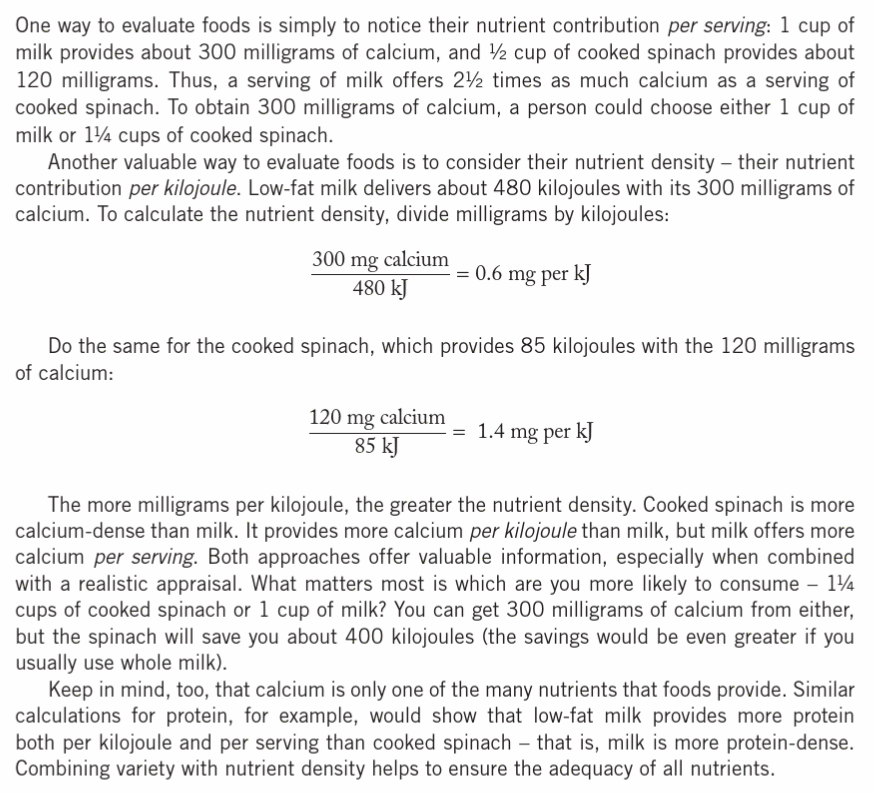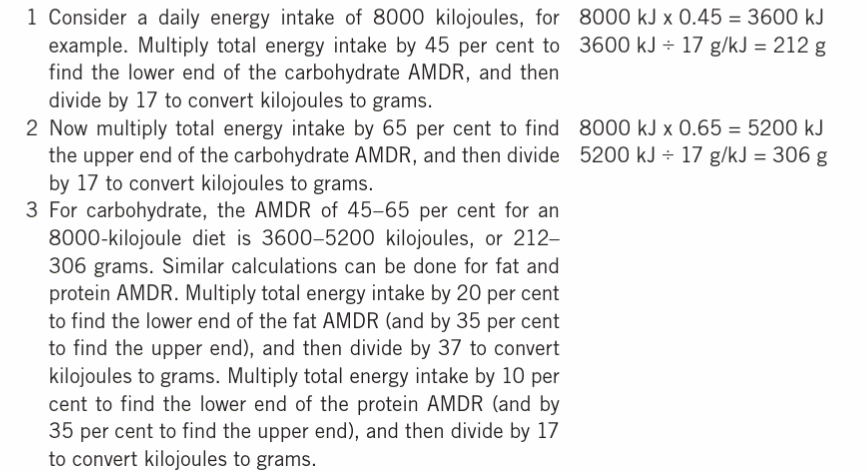NUT1011 - W2: Nutrients, NRVs & dietary guidelines
1/16
There's no tags or description
Looks like no tags are added yet.
Name | Mastery | Learn | Test | Matching | Spaced |
|---|
No study sessions yet.
17 Terms
What are NRVs?
Nutrient Reference Values
A set of standards that define the amounts of energy, nutrients, other dietary components and physical activity that best support health
What are SDTs?
Suggested Dietary Targets
Nutrients for which there was a reasonable body of evidence indicating a potential chronic disease preventative effect at levels substantially higher than the EAR, RDI or AI
How did the committee go about establishing the values that make up the NRV?
Estimated Average Requirement (EAR)
Recommended Dietary Intake (RDI)
Adequate Intake (AI)
Upper Level of Intake (UL)
What is EAR (Estimated Average Requirement)?
The average amount that appears sufficient for half the population
What is RDI (Recommended Dietary Intake)?
EAR is closer to everyone’s needs, however, if people consumed exactly average, half the population would be deficient (being deficient is worse than a bit excess). So the RDI is set near the top range of the population’s estimated requirement. So RDI is the amount needed to cover 98% of a population.
not used for intake of groups (just individuals)
What is AI (Adequet Intake)?
The AI reflects the average amount of a nutrient that a group of healthy people consumes.
For some nutrient, there is insufficient evidence to determine EAR (which is needed to set an RDI)
used when RDI can’t be defined
What is UL (Upper Level of Intake)?
The point above the recommended intake which a nutrient is likely to become toxic.
What is EER (Estimated Energy Requirement)?
The average dietary energy intake (kJ per day) that will maintain energy balance in a person who has a healthy body weight and level of physical activity.
How to compare foods based on nutrient density?

The RDI for a particular vitamin as documented in the NHMRC NRV guidelines differs for individuals depending on:
a. Hospitalisation
b. Body size
c. Physical activity
d. Pregnancy
d. pregnancy
What is AMDR?
The AMDRs provide nutrient recommendations for?
Acceptable Macronutrient Distribution Range
estimate of the range of intake for each macronutrient for individuals, which would allow for adequate intake of all the other nutrients whist maximizing general health outcome
What are they for?
Reducing risk of chronic disease
What is the best measure for amount of nutrients that should be consumed by the population?
EAR
Nutrients (organic, inorganic)

Nutrient (carbohydrate, protein, fat) energy

How to calculate the AMDR in grams and KJ

What is TEE?
Total Energy Expenditure
What are FFQ?
Food frequency questionnaire
useful for populations (lots of people)
less accurate